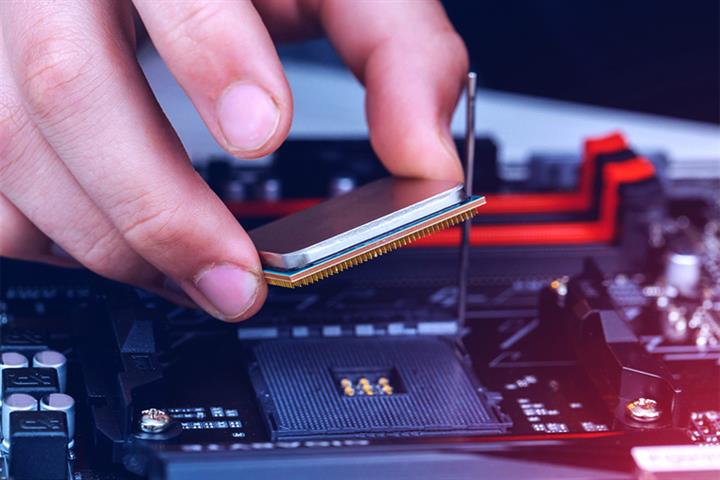 China’s San’an Optoelectronics’ Own Silicon Carbide Chips to Be Used in Cars From Fourth Quarter
China’s San’an Optoelectronics’ Own Silicon Carbide Chips to Be Used in Cars From Fourth Quarter(Yicai Global) April 10 -- The silicon carbide chips developed by Chinese light-emitting diode chipmaker San’an Optoelectronics are expected to be used in cars from the fourth quarter of this year, Yicai Global learned at a recent event.
Silicon carbide semiconductors are one of the future development directions of car power chips, Guo Yuhui, chip planning director of Chery Automobile Research and Development Institute, told Yicai Global during the auto power chip development seminar held by the China Automotive Chip Innovation Alliance on April 7.
Established in September 2020, the China Automotive Chip Innovation Alliance is supported by China’s Ministry of Science and Technology and Ministry of Industry and Information Technology and initiated by the National New Energy Vehicle Technology Innovation Center. Participants include carmakers, auto chipmakers, car parts suppliers, and institutions such as universities and other organizations.
The automobile industry is still short of chips, and making them domestically is one of the ways to solve shortages. But the production techniques for silicon carbide power chips are not mature enough, so yields are low and costs are high, Guo noted, adding that costs must be reduced in the future.
The costs of silicon carbide chips will drop 5 percent to 8 percent a year, Zhang Zhenrong, vice general manager of sales at San’an, told Yicai Global at the event.
The investment and construction period of silicon carbide chip projects is between 18 and 24 months, while the shortfall of silicon carbide power chips will probably last until 2025, Guo said.
The first stage of San’an’s CNY16 billion (USD2.3 billion) silicon carbide industry chain plant in Changsha went into operation in June 2021. It can turn out 180,000 six-inch silicon carbide wafers a year. The second stage, with an annual output capacity of 500,000 such wafers, will be finished this year.
Silicon carbide projects require huge investment and a long payback period, said Xu Daquan, executive vice president of Bosch China. Moreover, they need policy support and unified standards and must avoid blind expansion, so the government should control investment in such projects below a certain level, Xu noted.
Not many China-made silicon carbide power chips can meet the quality standards of auto-grade chips, so there is also a risk of overcapacity in mid-to-low-end silicon carbide power chips, Zhang pointed out.
During the event, the China Automotive Chip Industry Innovation Strategic Alliance also announced the establishment of an automotive power semiconductor division in Changsha to promote the development of the power semiconductor industry and form a competitive auto-grade power chip industry chain by focusing on innovation, industrial cooperation, and breakthroughs in key technologies.
The new division’s major duties are industry development, policy research, standards management, technology exchange and cooperation, and construction of the auto-power chip industry system.
Editor: Futura Costaglione